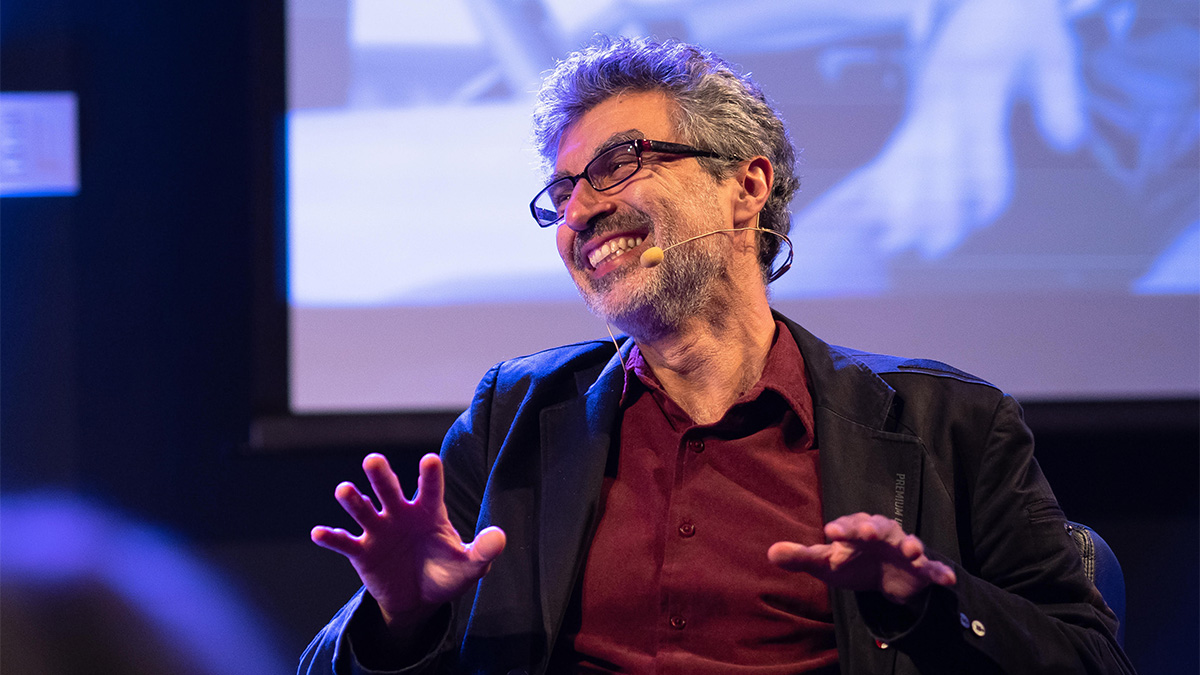By Yoshua Bengio, Université de Montreal / Mila / IVADO / CIFAR
Yoshua Bengio © Olivier_Bousquet
New powerful technologies like AI — which is far from reaching its full potential — can be greatly beneficial to society, but they also pose risks from possible misuse. We are thankfully seeing a lot of discussion on how governments can better protect the public from these abuses. Much more remains to be done to communicate the urgency for government intervention to maximize the development of AI-driven beneficial innovation in areas of great societal importance. Unfortunately, insufficient commercial appeal for corporations to do the required research and development means that the responsibility for the required innovation investments rests in the hands of governments.
Economists have long studied misalignments between the needs of society and market incentives, often arising because of the tragedy of the commons and other market failures, e.g., in dealing with pollution, climate change, education or health care. Governments are already considerably involved in these areas of social importance and have invested in relevant academic research, but typically leave the job of innovation leading to new products and services to corporations. This approach works in spheres with sufficient commercial value but fails in other areas of social need, corresponding to a market failure. Insufficient investments by the pharmaceutical industry to develop drugs that could stave off infectious diseases — some of which can trigger a pandemic on the scale of Covid-19 — offer a particularly striking example of such a failure, where commercial interests are not aligned with health interests. ??In this respect, a major global challenge is the rapidly growing threat of antimicrobial resistance (1.27 million deaths in 2019), which is disproportionately higher in the developing world and especially affects children, with projected deaths per year expected to reach 10 million by 2050 if nothing is done. If the Covid-19 pandemic has taught us anything, it's that if we don't prepare with appropriate countermeasures in place, our healthcare systems and economies will be brought to their knees, not to mention the human toll. Yet, it is not commercially profitable to develop new antibiotics, so most companies have pulled out of the needed large-scale investments. Governments have an opportunity to invest now in the required research and AI could significantly reduce the costs of development as well as enable the discovery of better therapies, as outlined in our GPAI 2021 report, "AI for Public Domain Drug Discovery."
Another example is climate change. At the current price of carbon, many potential technological solutions don’t reach the development stage because they would not be sufficiently profitable. It is thus crucial that governments invest in technologies like AI that could help accelerate the needed transition, as documented in our GPAI 2021 report on "Climate Change and AI." Such investments can actually come with added benefits for society. When funding R&D for such socially important goals, governments can attach strings to the funding contracts, for example, by making open science, data sharing and downstream licensing favorable to developing countries a prerequisite. This is particularly important for AI since appropriately sharing data (when it does not violate privacy norms) can enable many more actors (e.g., academia) to participate in the research effort, thereby reducing costs to society while accelerating the pace of progress.
In order to address many of the sustainable development goals, governments and international organizations coordinating their efforts should pay attention to the needed investments in socially motivated technological innovation, especially in areas where the social value is great but insufficient private investments and the lack of open science development and data sharing hinder progress.
Yoshua Bengio is a Full Professor in the Department of Computer Science and Operations Research at Université de Montreal, as well as the Founder and Scientific Director of Mila and the Scientific Director of IVADO. Considered one of the world's leaders in artificial intelligence and deep learning, he is the recipient of the 2018 A.M. Turing Award with Geoff Hinton and Yann LeCun, known as the Nobel prize of computing. He is a Fellow of both the Royal Society of London and Canada, an Officer of the Order of Canada, and a Canada CIFAR AI Chair. In 2022, was elevated to the rank of Knight of the Legion of Honor by the French Republic.
Science, technology and innovation can be catalysts for achieving the sustainable development goals.
In the context of the UN Commission on Science and Technology for Development, the CSTD Dialogue brings together leaders and experts to address this question and contribute to rigorous thinking on the opportunities and challenges of STI in several crucial areas including gender equality, food security and poverty reduction.
The conversation continues at the annual session of the Commission on Science and Technology for Development and as an online exchange by thought leaders.


